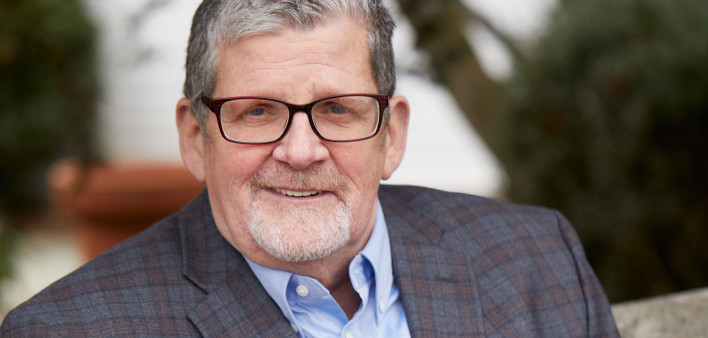These days, Ed Barron, 67, is having to economize very carefully. The New Jersey resident—not only a survivor of HIV, diagnosed in 1986, but also of cancer—had a bad fall down a staircase a few years ago that has left him with numerous complications. He now mainly uses a motorized wheelchair to get around. He received about $30,000 in a settlement related to the fall, most of which went to paying back Medicare for fall-related expenses and lawyer’s fees.
Yet that modest bump in his assets meant that Medicaid will no longer pay for Parts B and D of his Medicare. This means that, going forward, about an additional $400 a month will have to come out of his own pocket, leaving him with only about $200 between his monthly income intake and all his expenses. “I’m going to have to cut down on a lot of things,” he says.
That’s because that $200 monthly margin must cover not only gas for his car but groceries and anything that could be considered “fun,” such as grabbing pizza with his friends from the 12-step meetings he attends a few times a week as part of his recovery from alcohol and substance use.
When it comes to groceries, he says, he’s clever at economizing. “I’ll buy the $5.99 rotisserie chicken my supermarket offers as a special on Tuesdays, plus a bag of noodles, and I’ll make chicken soup that’ll last me a few days,” he says. “Or last night—I made a London broil, so tonight I’ll make a shepherd’s pie with the leftovers and mashed potatoes from a box.”
He also intends to buy more food in bulk and store it in his freezer to keep costs down.
But outside-the-house expenses can be trickier. “I don’t feel comfortable asking my friends to buy me pizza, so I’ll probably just go home after meetings and become more isolated,” he says. That might be offset, he says, by his sister and friends who live nearby who often take him out for a bite to eat.
He’s been talking with a longtime staffer at Hyacinth, his local AIDS services organization, to help him sort through the tangled web of his benefits and finances. And he also receives a small stipend for his work with ROC 4 Aging+, a Gilead Sciences–sponsored network of HIV longtime survivors that helps craft policy to serve Americans aging with HIV. “But even that is money I have to report to Section 8,” the federal program that helps him pay his rent. “I hope it doesn’t bump up my share of the rent too much.” His current share of his $859 monthly rent is $615.
His source of joy amid all this financial hassle is the time he spends with other HIV longtime survivors. But many of them live in New York City, which presents a challenge for him to get to because it entails getting his wheelchair (which he also had to pay for himself because it was customized to his need) in and out of his car.
“A friend had to bear with me while I took forever to walk two city blocks recently when I didn’t have the wheelchair,” he says. But it’s worth it when the payoff is something like speaking at New York City’s AIDS Memorial or catching a Bernadette Peters concert.
“I have to do these things to feed my spirit and have some levity in my life,” he says. “Otherwise, I just feel like I’m living in the health care system.”
He also loves spending time with his sister and nieces and nephews. “I spent Christmas surrounded by six screaming kids, and it was nice,” he says. “My sister told me recently that I’m not only her sibling, but I’m also her friend. And that’s not the kind of thing she said to me back when I was using drugs. Today, I’m able to show up for things, which helps me get what I need emotionally.”
But, like many folks living with HIV, he just wishes he had a little more money at his disposal to make life a bit easier and more fun. “I’ve been going to Washington, DC, for years as an advocate to ensure affordable health care for people like me, and I still find myself in this situation,” he says. “It’s very frustrating. My life is definitely not all rainbows and lollipops.”







6 Comments
6 Comments